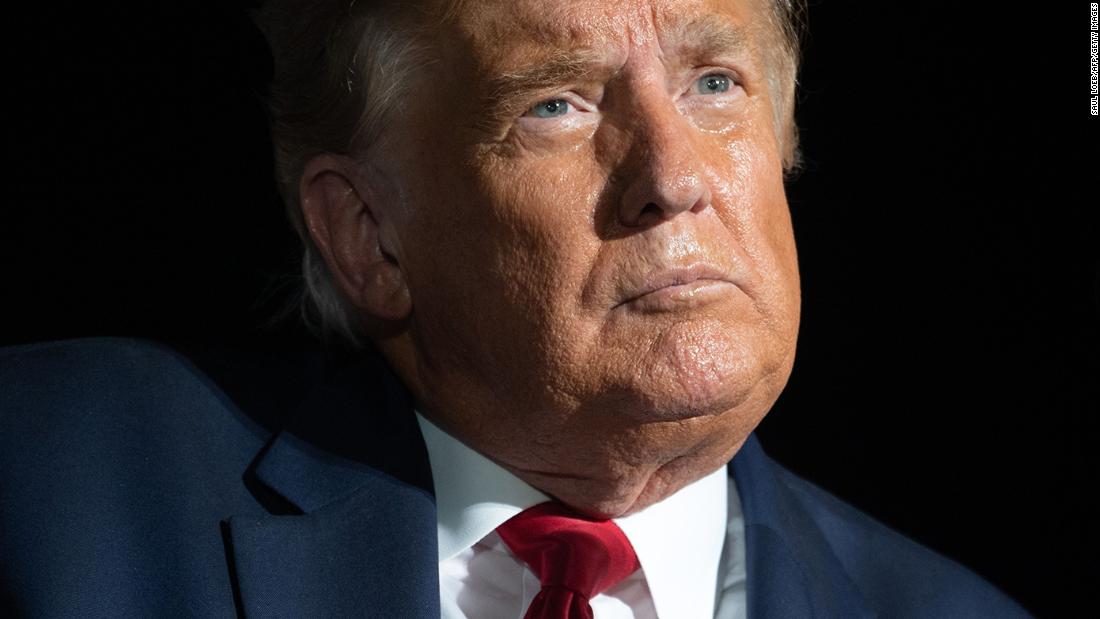“We live in an attention economy. And attention equals power. And we still, as a country, have not fully been able to reckon with what that means.”
That’s what Nancy Gibbs says in the first 30 seconds of “Enemies of the People,” an hour-long documentary premiering on
Vice TV this week.
The film shows how candidate Donald Trump soaked up attention in 2015 and 2016. As president, he has certainly continued to exploit the
“attention economy” dynamic. But there are limits. He isn’t garnering as many eyeballs these days. He isn’t able to generate as much attention. And his challenger, Joe Biden, is applying a very different campaign strategy. Give me two minutes of your attention and take a look…
In the final stretch of the campaign, GOP strategist types keep saying (some quietly, others loudly) that less Trump is more. After all, the 2020 campaign is “revolving around the president’s divisive behavior,” CNN’s Kevin Liptak wrote Tuesday. So when Trump came down with Covid-19, some people in his circle “felt it couldn’t hurt to have Trump out of public view for a few days,”
Liptak wrote.But there’s been no reset, no message adjustment: “Instead of retreating from view, Trump has taken a maximalist approach through hours of interviews, nightly campaign rallies and an endless stream of tweets.” Case in point, on Tuesday, he “backed a budding conspiracy theory” about Benghazi “and the ‘fact’ that Osama Bin Laden is still alive,” The Daily Beast’s Will Sommer
wrote. It is “sheer lunacy,” as Jake Tapper
tweeted. “You’d be worried about a family member who was this far down the rabbit hole,” Brendan Nyhan
wrote. “We’ve given him the nuclear codes.” And yet, off of Twitter, it barely received any attention at all…
Rallies — what rallies?
The president held a campaign rally in Johnstown, Pennsylvania Tuesday night, but Fox News only showed small portions of it. Fox took the same approach on Monday. So, for the second night in a row, Trump urged his Twitter followers to watch on OANN, Newsmax or C-SPAN — which indicates that he is aware of Fox’s snub.
OANN and C-SPAN are not nationally rated by Nielsen, but Newsmax is, so I looked up Monday night’s ratings. Trump did give the channel a ratings bump — from 59,000 viewers the hour before his 7pm rally to 206,000 viewers during the rally. But Fox had 3.6 million viewers during the same hour. MSNBC and CNN had nearly 2 million each. As for Newsmax, its audience quickly tapered off after the rally, and by 9pm a repeat of Sean Spicer’s show averaged just 20,000 viewers.
Trump’s campaign: a rerun of 2016?
I am far, far from the first person to say this, but perhaps Trump has just become… boring? On Tuesday night, for instance, he did “his usual lie-shtick about how he just saw CNN’s camera light go off right after he insulted CNN,” Daniel Dale
wrote. “CNN doesn’t broadcast these rallies live, doesn’t turn off its cameras when he insults CNN, and doesn’t use any visible camera light when recording at rallies.” Yet Trump has been repeating this lie for years! It’s boring.
Quinta Jurecic advanced this argument in The Atlantic two weeks ago.
Jurecic said “Trump is boring in the way that the seventh season of a reality-television show is boring: A lot is happening, but there’s nothing to say about it.”
“Trump is pretending it’s 2016 again,” Ryan Lizza
wrote Tuesday night, and he’s “lost the populist message that won him an unlikely victory.”
This doesn’t mean Trump support is boring or irrelevant. I think voters’ choices should constantly be getting more attention. It’s “the Trump show” that seems to be fading. Reporters are picking up on a whiff of desperation at the rallies… As sensed in Trump’s comment in Johnstown on Tuesday night: “Suburban women, will you please like me?” The headline on Kathryn Watson’s ensuing
story for CBS: “Trump makes plea to suburban women in Pennsylvania.” A
plea…
‘The Trump Show is facing cancellation’
That’s the headline on Alyssa Rosenberg’s
newest piece for WaPo. Rosenberg, a liberal columnist, says “the thing about running your life — or your presidential administration — like a television show is that eventually TV shows end.” She
continues: “In the waning days of what might prove to be its final season, the Trump Show feels as if it’s given up on the prospect of bringing in new viewers. Instead, it’s replaying the hits for longtime fans…”
How Biden fits into this
Biden isn’t doing a whole lot to attract attention. Search Google for the words “attention economy” plus his name and you’ll find almost nothing. “Biden’s low-visibility campaign is working,” Ezra Klein
commented on Tuesday. “So many Democrats were panicking about Biden’s small media footprint. But perhaps people like politicians more when they see them less.”
“Enemies of the People”
The documentary I mentioned, which was directed and produced by Susie Banikarim, will be shared on the
Vice TV YouTube channel on Wednesday, and will premiere on the TV channel Thursday at 7:30pm ET. I was interviewed for the film, along with Katy Tur, Jorge Ramos, Jake Tapper, Jeff Zucker, Dana Bash, Maggie Haberman, David Remnick, and many others. Here are three of my favorite quotes from the film:
— Haberman: “His followers don’t get how much of this is a game for him, and that’s what I think the danger is.”
— WaPo’s Jenna Johnson on his media attacks: “As time went on, the tone of it got darker and darker.”
— Tur: “George Orwell said it best: ‘To see what is in front of your nose demands a constant struggle.'”
